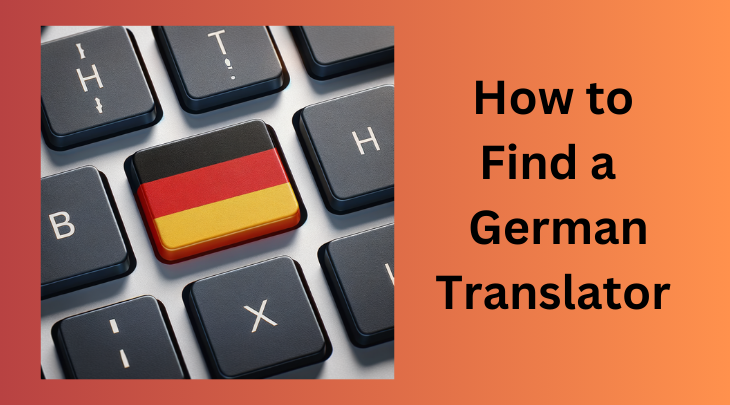How to Find a Good Translator for the German Market
Publishing your book in a new language is an exciting opportunity to reach a broader audience. For English-speaking authors, the German market is particularly attractive due to its large and avid readership. However, finding a skilled translator who can faithfully convey your story while resonating with German readers is crucial. Here’s a guide to help you find the perfect translator for your book.
1. Look for a Specialized Professional
A professional translator not only understands the source and target languages but also the cultural context, ensuring your book is well-received by German readers. Automated tools and amateur translators might save money upfront, but they often fail to capture the nuances and stylistic elements of your writing.
When searching for a translator, prioritize those with experience in your specific genre. Translating a romance novel, for instance, requires a different skill set than translating a highly technical hard SciFi novel. Check their portfolio for previous works in your genre and assess the quality of their translations.
Read testimonials from other authors who have worked with the translator to gauge their reliability and quality of work. Connect to other authors in your genre on social media to see who has ventured into translations already and contact them directly to get valuable recommendations.
Places to look for translators:
- Upwork
- Selfpublishing-Markt
- translatorscafe.com
- Babelcube
- German association of literary translators (VdÜ)
- Reedsy
- ProZ
- Translation Agencies like Libelli
- Or find some freelance translators on my Resources page.
2. Request a Sample
Before committing to a translator, you can request a sample translation of a short passage from your book. This will give you a clear idea of their translation style and how well they understand your writing.
If you don't speak the language or know anyone who does, you could hire a professional who is fluent in both English and German to review the sample translation (for example on a platform like Fiverr). Some translation agencies also offer review services where another translator or editor will assess the sample translation.
3. Consider the Translator's Familiarity with the German Market
A translator who understands the German book market can provide valuable insights into local preferences and trends. They can help you tailor your book to better suit German readers, including advice on appropriate marketing strategies and potential changes to the content, cover and title to align with cultural expectations.
4. Communication and Contract with the Translator
Effective communication with your translator is essential for a successful translation project. Ensure that the translator is responsive, open to feedback, and willing to collaborate closely with you. A good translator will ask questions to clarify any ambiguities in the text and discuss any cultural adjustments needed for the German audience.
Before starting the translation, discuss the terms of the contract, including payment, deadlines, and any other expectations. Ensure that both parties have a clear understanding of the project scope and that the translator can meet your timeline without compromising on quality.
5. Expected Costs of a Translation
Costs for translations vary depending on many factors, including genre, difficulty of the text and urgency. For fiction translations, the average price range in Germany is around 0.10 €/word. Some German translators also charge per page (1,500 characters per page including spaces).
For editing and proofreading, prices start from 0.02 to 0.05 €/word or 3 to 6 € per page.
You can look for a royalty-split deal on a platform like Babelcube if you don't have the budget it takes to do a professional translation. They also handle the entire distribution and sales process and pay both author and translator their share each month.
6. The Importance of Proofreading and Editing
Even with a skilled translator, the translation process isn’t complete without thorough proofreading and editing. Translation inherently involves nuanced choices and interpretations, which can introduce errors or inconsistencies. Engaging a professional proofreader or editor who is fluent in both the source and target languages ensures that the final text is polished and free of mistakes.
Ideally, your translator should already have connections with experienced proofreaders and editors. This collaboration ensures that your book not only maintains its original quality but is also perfectly adapted to the German market. By having a translator who works closely with such professionals, you can streamline the process and achieve a higher standard of translation.
Find more information on my translation services here.

